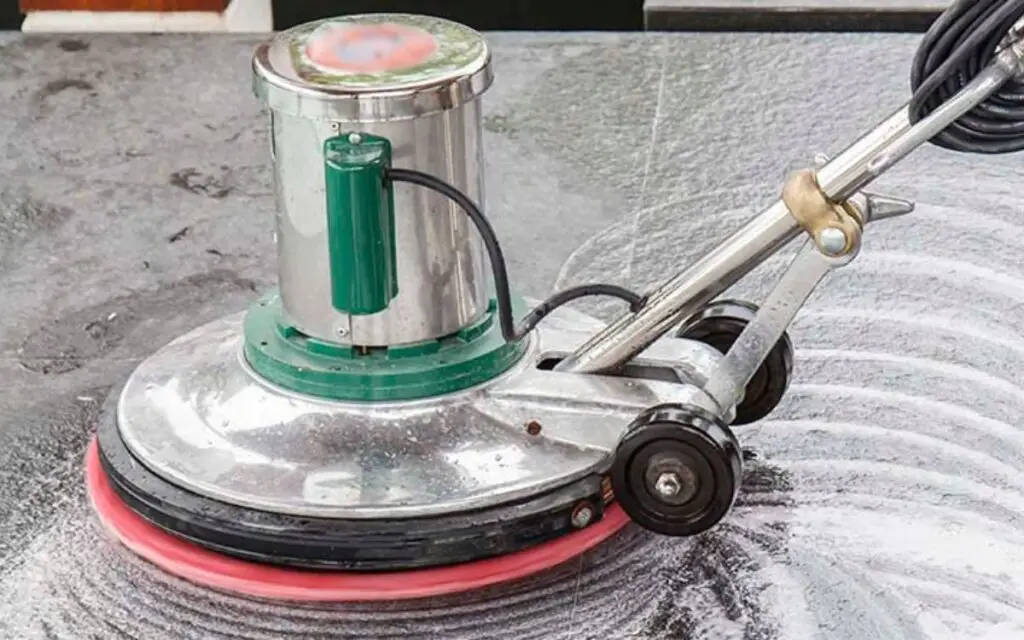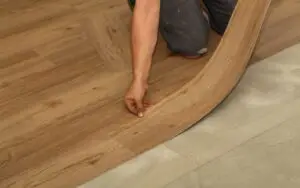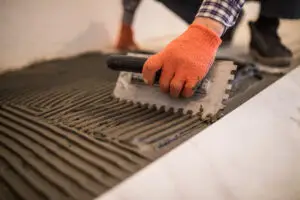Understanding Stone Flooring Maintenance
Factors Influencing Maintenance Needs
Type of Stone
The type of stone significantly influences maintenance needs. Softer, more porous stones like marble and limestone require more diligent care than harder, less porous stones like granite and slate. Understanding the specific properties of your stone is the first step in proper maintenance. Professional installers are very familiar with all of the different types of stone and can help you choose the perfect one for your needs and lifestyle.
Finish and Sealer
The finish and sealer applied to stone floors play a critical role in their maintenance. A high-quality sealer protects the stone from stains, moisture, and wear. Different sealers are designed for different types of stone, and a professional can help you select the right product, and also with the proper application techniques, to ensure that your floors last as long as possible, and look their best.
Traffic and Usage
The level of foot traffic, and the type of activities that take place on your stone floors, will also impact the amount of maintenance that is required. High-traffic areas and homes with children or pets will require more frequent cleaning, and sealing, to prevent damage and maintain their appearance. It is important to take these factors into consideration when developing a maintenance plan for your stone tile flooring.
What Constitutes High Maintenance?
Sealing Frequency
High-maintenance stone floors require frequent sealing, often every 1-2 years, to protect them from stains, and moisture damage. This process involves cleaning the floor, applying the sealer, and allowing it to cure, which can take a significant amount of time, and effort, and also requires the use of the correct types of tools. A professional can advise you on the correct steps to take, or can also simply handle the sealing for you.
Cleaning Protocols
High-maintenance stone floors also require specific cleaning protocols, such as using pH-neutral cleaners, avoiding abrasive scrub brushes, and promptly cleaning up any spills. These extra precautions are often required, to prevent damage, and to maintain the appearance of your floors, and can be difficult for some homeowners, which is why hiring a professional can be so beneficial.
Repair Needs
High-maintenance stone floors may also be more prone to scratches, chips, and stains, which will often require more frequent repairs. These types of repairs should always be handled by a professional installer, to prevent any further damage, and to help keep your floors looking their best. These types of services are also often covered by a warranty, which will give you added protection, and peace of mind.
Stone Flooring Options: From High to Low Maintenance
High-Maintenance Stone
Marble
Marble is renowned for its elegant beauty, but it also requires the most maintenance, of any type of stone flooring. Marble is highly porous, and prone to staining, and is also more susceptible to scratches and etching from acidic cleaners, and spills. Therefore, marble floors require regular sealing, gentle cleaning, and extra care, to avoid any damage, and it is also highly recommended to hire a professional service to perform these tasks.
Limestone
Limestone is another high-maintenance option that is also porous and prone to staining. It requires regular sealing, and gentle cleaning methods, and should also be protected from scratches and spills. It is very important to only use cleaners that are specifically designed for limestone, and it is also recommended to hire a professional installer to maintain your limestone floors.
Moderate-Maintenance Stone
Travertine
Travertine is a moderately porous stone that requires regular sealing, and cleaning, to maintain its appearance. Its textured surface can also trap dirt and debris, which makes it necessary to sweep, or vacuum regularly. It is also important to avoid using abrasive cleaners, which can damage the surface of the stone. Professional installers are very familiar with travertine, and can always provide their advice and services to ensure that your floors are well-maintained.
Low-Maintenance Stone
Granite
Granite is a very durable, and low-maintenance stone, that is highly resistant to scratches, stains, and moisture. It only requires routine cleaning with mild soap and water, and sealing is only recommended every few years. Granite is a great choice for homeowners who want a durable floor, that does not require a lot of extra maintenance.
Slate
Slate is another low-maintenance option, due to its natural slip-resistant texture. It is easy to clean, and is also very resistant to stains, and scratches. Sealing is still recommended every few years, to protect the stone, and keep it looking its best. Professional installers can always assist with all of your slate maintenance needs.
Tips for Easy Stone Floor Care
Regular Cleaning Practices
Sweeping and Vacuuming
Regular sweeping and vacuuming are essential for removing dirt, dust, and debris, and will also prevent scratches and damage. You should always use a soft broom, or a vacuum with a brush attachment, to avoid damaging the surface of the stone. These steps will protect your floors and make other cleaning tasks more manageable.
Damp Mopping
Damp mopping should also be done on a regular basis to remove dirt and grime. Always use a pH-neutral cleaner that is specifically designed for stone, and avoid using too much water, as excess water can seep into the grout lines, and cause mold and mildew. It is also recommended to use a microfiber mop, to avoid scratching the stone.
Protective Measures
Using Rugs and Mats
Using rugs and mats in high-traffic areas can help to protect your stone floors from scratches, dirt, and debris, while also helping to absorb moisture from shoes, and pets. Place rugs at entrances, and in areas where there is a lot of foot traffic, to help keep your floors looking great.
Avoiding Harsh Cleaners
Avoid using harsh cleaners, such as bleach, ammonia, or acidic cleaners, as these can damage the surface of the stone, and cause discoloration or etching. It is always recommended to only use cleaners that are specifically designed for natural stone. If you are not sure which types of products to use, professional installers can always provide their recommendations.
Sealing and Maintenance
Choosing the Right Sealer
Choosing the right sealer for your specific type of stone is crucial for effective protection. Some sealers are designed for porous stones like marble and limestone, while others are better suited for denser stones like granite and slate. Professional installers are very familiar with all types of sealers, and can always help you choose the right products for your floors.
When to Seal
The frequency with which you seal your stone floors will depend on the type of stone, and the amount of traffic it receives. Softer stones may require sealing every 1-2 years, while harder stones may only need to be sealed every 3-5 years. It is also essential to hire a professional installer, who will always use the correct techniques, and ensure that the sealer is properly applied, for optimal protection.
DIY vs Professional Stone Floor Care
Challenges of DIY Maintenance
Risk of Damage
DIY stone floor maintenance often carries the risk of damage from using the wrong cleaning products, or improper techniques. This can also lead to long-term damage that will be very difficult to repair. For this reason, many homeowners choose to hire a professional, to ensure that their floors are protected.
Inconsistent Results
Achieving consistent results with DIY stone floor maintenance can be challenging, as it is often difficult to apply sealers evenly, or to remove stubborn stains, without the proper equipment. This will often leave the floor looking dull, and amateurish, which can be avoided by hiring a professional installer.
Benefits of Professional Stone Care
Expertise and Specialized Equipment
Professional stone floor care services have the expertise and specialized equipment needed, to clean and maintain your floors thoroughly, and safely. They are also familiar with all types of stone, and will always know the best practices for each material. These types of benefits are not available with DIY maintenance, which is why a professional installer is almost always the best choice.
Guaranteed Protection
Professional services often provide guaranteed protection for your stone floors, which will protect you from any potential damage, and will also ensure that your floors always look their best. This is another very important reason why most homeowners will choose a professional installer, to help protect their investment, and provide peace of mind.
Case Studies: Maintenance Impact
Example of Properly Maintained Stone
A homeowner with marble flooring in their entryway, hired a professional service, to perform all of the required cleaning and sealing procedures. They also only used the cleaning products that were recommended by their professional installer. As a result, the marble floor retained its original shine, and beauty, and continued to look great for many years to come.
Example of Damaged Stone From Neglect
Another homeowner with limestone floors, neglected to follow any of the recommended cleaning or sealing guidelines. They used harsh chemicals, and abrasive cleaners, and never hired a professional, to inspect the floors. The limestone was severely damaged, and had to be completely replaced, which was a costly and time-consuming project.
FAQs & Answers
Not all stone floors are difficult to maintain. Some types of stone, such as granite and slate, are relatively easy to care for, while others, like marble and limestone, require more attention to prevent staining, and damage. Professional installers can help you make the right choice for your specific needs, and lifestyle, and can also advise you on how to best protect your investment.
Key factors that determine how much maintenance a stone floor will require include the type of stone, the finish and sealer applied, and the level of foot traffic it experiences. Softer stones, and floors that see a lot of use, may require more frequent sealing and cleaning than those with more durable stone in low traffic areas. Professional flooring experts can also provide valuable advice, based on their expertise, and can often help you to make all of the right choices.
Routine cleaning for stone floors typically involves regular sweeping or vacuuming, to remove any dirt and debris, along with occasional damp mopping using a pH-neutral cleaner that is designed for stone. Avoiding harsh chemicals, and abrasive cleaners, is very important, as these can damage the surface of the stone. A professional installer can help you decide on the best techniques for your specific floors.
Sealing is very important for stone floors, as it helps protect them from stains, moisture, and other types of damage. The frequency of sealing will depend on the type of stone, and how much it is used, but is generally recommended every 1-3 years, or as needed. Professional installers can perform a test, to determine if your floors need to be sealed, and can also apply a new coat of sealer quickly, and efficiently.
Hiring a professional service for cleaning and maintaining stone floors, offers several advantages, such as the expertise needed to properly care for different types of stone, the right tools and equipment, and the peace of mind knowing that your floors are being properly protected. These types of services are also often backed by a warranty, which will provide you with added protection, and peace of mind.





